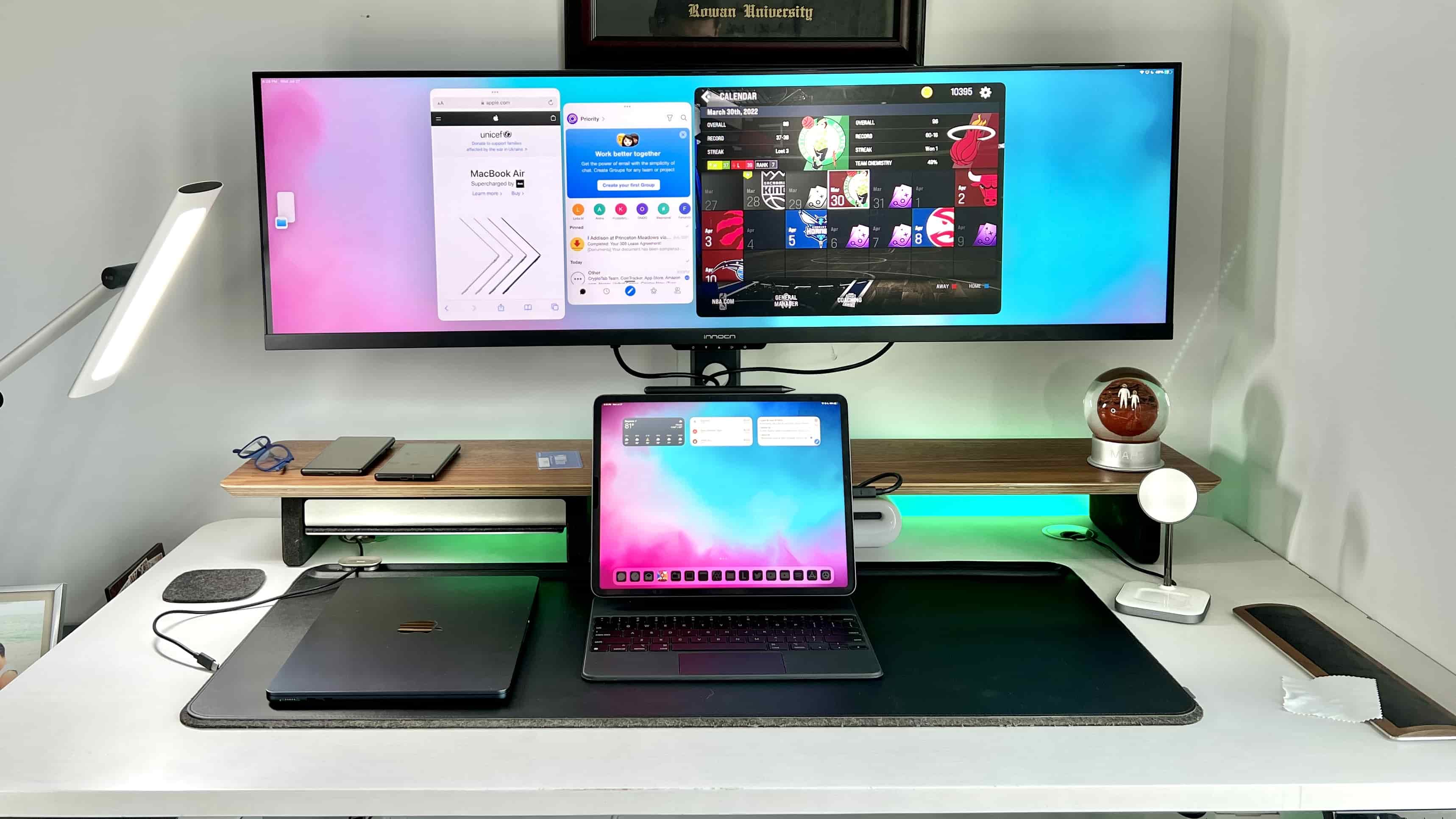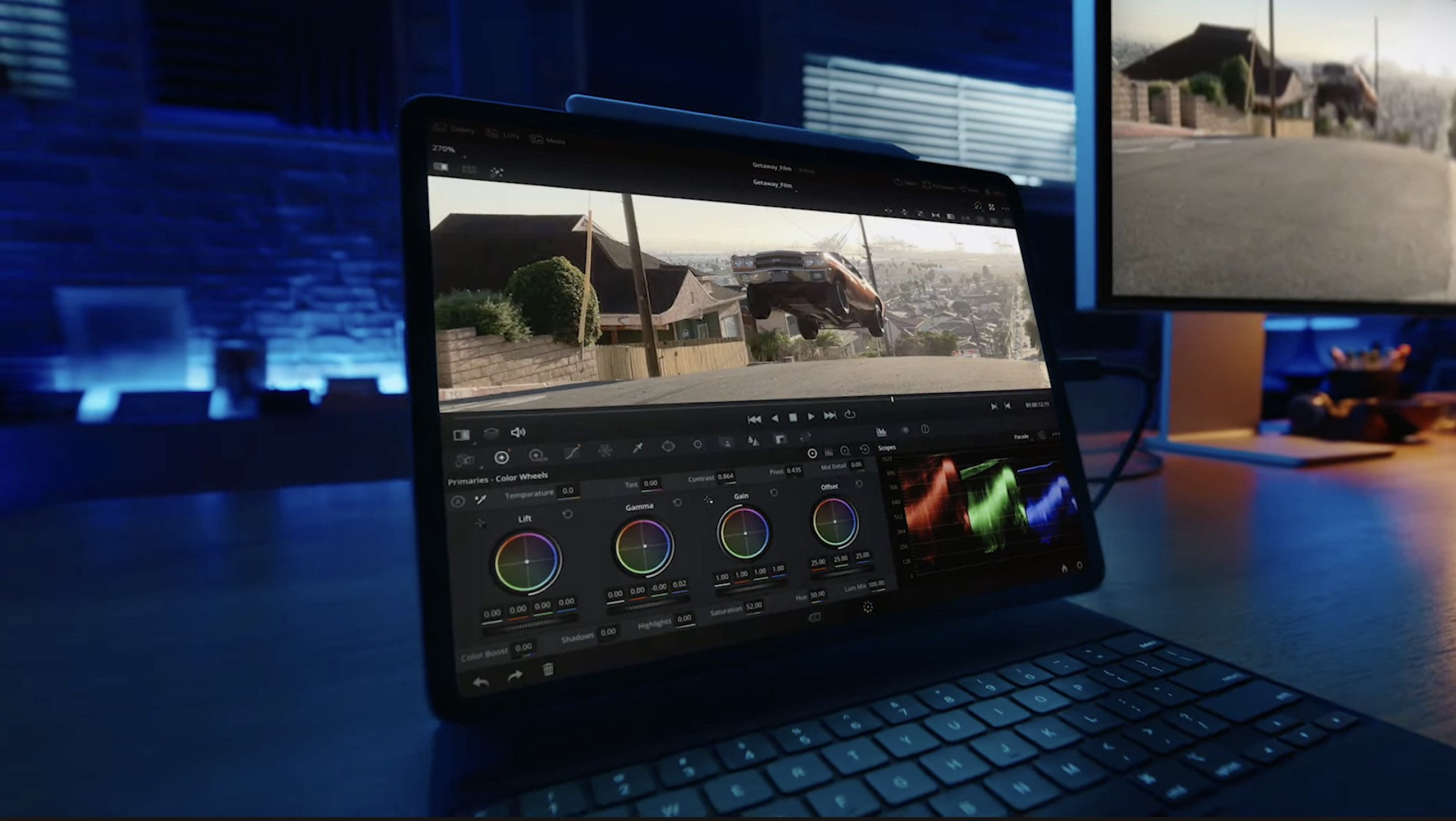
Apple last year introduced a new iPad Pro that is essentially the same as the previous generation model, but this time with the faster M2 chip. While rumors suggest that none of the iPad models will get massive upgrades in 2023, it seems that Apple has been working on a “major iPad Pro revamp” for 2024. But at this point, iPad Pro doesn’t need a major revamp, but better software.
The current state of iPad Pro and rumors about the future
The last major redesign of the iPad Pro was in 2018, when the company ditched the design with the Home button in favor of the new one with an edge-to-edge screen. Since then, despite the addition of the Magic Keyboard and improved cameras, the iPad Pro’s hardware has never changed much.
Of course, something else happened in 2021. That was when Apple introduced the first iPad Pro with the M1 chip – until then a chip designed for Macs. And in 2022, iPad Pro was updated again with the same M2 chip as MacBook Air and the new Mac mini.
While the rumors for the 2023 iPad Pro are not exciting, Bloomberg reported this week that Apple is working on a major redesign for the 2024 version, which is also expected to feature an OLED display for the first time on an iPad. In addition, both Bloomberg and 9to5Mac have reported in the past that Apple has considered bringing MagSafe to the iPad Pro.
But honestly, it’s not a new design that the iPad Pro needs – not even an even more powerful chip.
iPad Pro needs better software
For years, the problem with the iPad hasn’t been hardware, but software. Since the 2018 iPad Pro, Apple claims that its tablet is faster than most laptops. Today this is even more true with iPads powered by the same chips as Macs.
Even so, the iPad software is a mess. Although Apple came up with the iPadOS name, it is essentially a version of iOS optimized for larger screens. With iPadOS 16, Apple tried to differentiate iPadOS with Stage Manager – a feature that brings windows to the iPad. While Stage Manager certainly enables a new level of multitasking on the iPad, it’s still much more limited than users find on macOS and Windows.

Users can only open four apps per time on each screen, which may be a reasonable limit for the iPad screen but not for when you have an external monitor connected. Just imagine having that limit on a Mac. And Stage Manager is buggy and inconsistent. You can’t even move and arrange the windows freely like in a desktop operating system.
Top comment by Null
The really hard part is Apple needs to keep the simplicity of the iPad with any future updates. The large reason I love my iPad is even though I am a very technical user (and iOS developer at that), I enjoy just opening an app and it working. The iPad delivers on Steve's original vision of a computer so simple that everyone can enjoy it.
But that’s only part of the problem with iPadOS. Since it is based on iOS, the system is much more limited and restricted. Powerful software available on desktop platforms requires access to some tools that Apple simply doesn’t provide on iOS. This results in developers taking more time or even considering whether it’s worthwhile to release “pro” apps for iPadOS.
Even Apple, which likes to show that iPadOS is a great platform for developers, has never brought apps like Final Cut, Logic Pro, and Xcode to the iPad.

Will iPadOS 17 unleash the potential of the iPad?
It’s hard to tell at this point. With iPadOS 16 bringing a big focus to features that turn the iPad into a computer, we certainly expect to see more of this with future updates. However, a recent report by Mark Gurman revealed that Apple has been prioritizing the development of its new AR/VR platform over iOS 17.
In other words, users should hold their expectations about features coming with iOS 17 and iPadOS 17. And no matter how much Apple improves the iPad’s hardware, makes it faster, or changes its design, none of this will solve its main problem: having a “baby software” for a powerhorse device.
FTC: We use income earning auto affiliate links. More.



Comments